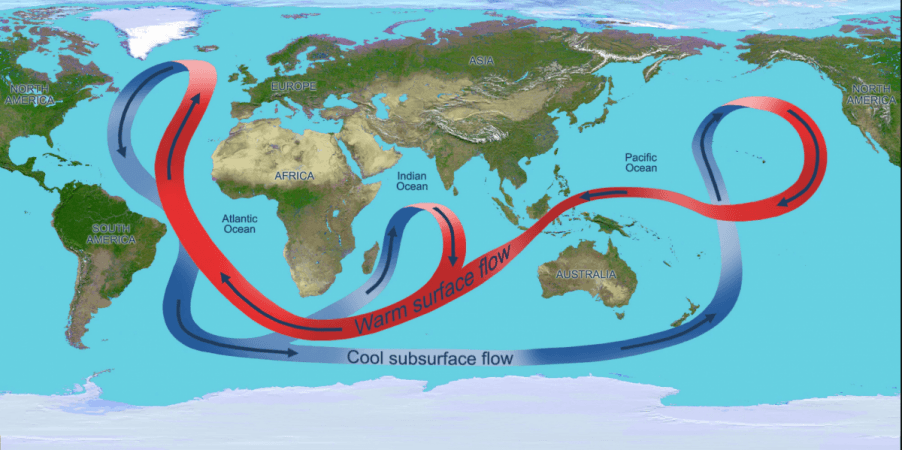- The Atlantic meridional overturning circulation (AMOC) keeps temperatures stable throughout the planet by moving warm water into the Arctic and cool water to the equator
- Melting ice shelves in Greenland and the northern oceans makes the movement of the oceans' conveyor belt a lot slower
- Slower currents mean extreme weather around the planet- the northern Atlantic will get a lot colder and winters will become harsher in the coming years. The Eastern Seaboard of the US is set to face sea level rises and fiercer storms
The "conveyor belt of the ocean" as the Atlantic ocean currents are known, play an important part in regulating temperatures world over. This phenomenon has slowed down to a crawl, and is right now at its slowest pace in 1,000 years.

What this means for the planet is worrying. According to the researchers who made this finding, if ocean currents do not work, it will lead to extreme climates in different parts of the world, reports the Inquisitr. Chances of harsher winters and fiercer storms are likely in the near future. Called the Atlantic meridional overturning circulation (AMOC), this system of North Atlantic Ocean currents has continually weakened through the 20 century by about 15 percent.
AMOC current works by bringing warm equatorial surface water to the northern tundra. Once the water gets cold, it drops down to the deep ocean which is then carried back to the equatorial belt. This is beneficial for both parts of the world, raising temperatures one side, while cooling off the other.
What then has caused this slowdown?
Short answer is global warming and climate change. For warm water to move fast, it has to be of a certain density. Warm water is less dense, hence moving to the surface and flowing freely. As ice melts rapidly in Greenland and other Arctic regions, flooding the sea with cold, freshwater. Cold water is really dense and it really reduces the speed of the conveyor belt.
It will lead to a less effective ocean current, which in turn will mean climate regulation will not take place as it should. Climate extremes are being predicted in different parts of the globe. Europe, for example, is likely to be hit by harsh, long winters. The East Coast of the US, on the other hand will see rapid sea level rise, disrupting life and livelihoods along the eastern seaboard.
This recent study, conducted by a team of scientists from Germany and the UK, can be seen as an update to a NASA report published in 2010 where they found that the AMOC was not slowing down in any considerable manner.
The above study, titled "Observed fingerprint of a weakening Atlantic Ocean overturning circulation" was first published in the journal Nature.

















